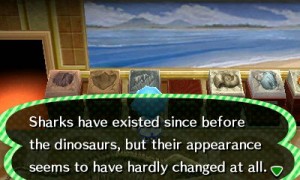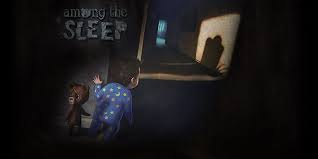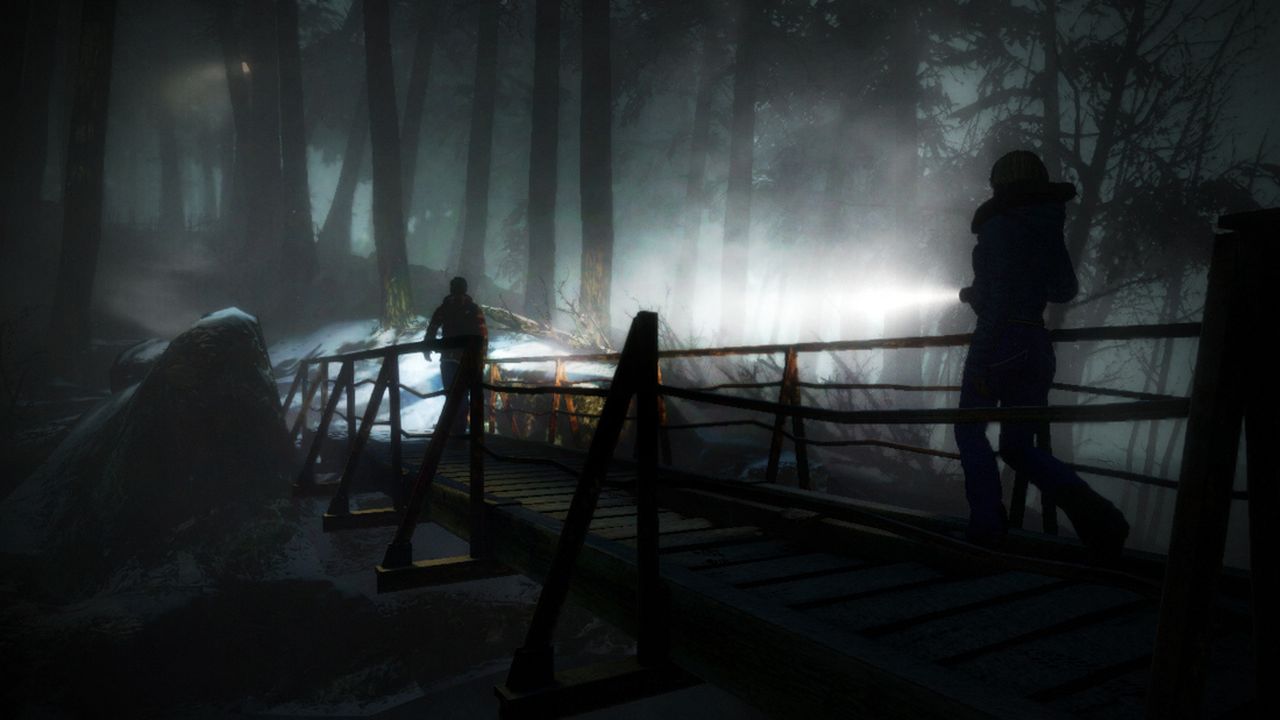It’s been a while since I’ve done a play with your kids post because not much has changed in these parts. We are still doing a second play through of Ni No Kuni and spending far too much precious gaming time on Animal Crossing: New Leaf…both Pea and I. And with only a couple of weeks left to go before kindergarten begins and her life changes forever I have been allowing a little more screen time that is typically taking the form of playing Animal Crossing.
And lest some of y’all begin to think that I am the worst parent ever for using these last precious weeks of pre-kindergarten preparation time just letting her play Animal Crossing and buying out her stores daily…we are using Animal Crossing to help with sight reading a letter recognition. I was worried that as the game progressed that it would be too difficult for a non-reader. And it would be if she and I didn’t play together. When she finds herself in the situation where “the reading pops up” rather than telling her which selection to make I tell her what the proper selection will say and I spell it out for her, word by painstaking word. Some days and times this works better than others…we don’t let frustration get the best of us. When it gets to be too much I show her the right choice and we spell it out, but some times I am a pretty hard task master and make her figure it out. It is all about knowing your child and knowing when frustration is feigned in an attempt to “just play the game”. In the month or so that we have been playing Animal Crossing we have learned to sight read quite a few words (especially choices like “confirm” and “quit”) but we are also learning some of the less frequently seen words as well so I think that it may be working pretty well after all.
 And because life is not all about letters, we have also been using the game to learn about hybridization as the game allows you to grow hybrid flowers by planting different flowers next to each other. And if that wasn’t enough fun, the game also has a built in encyclopedic index of all of the fish, bugs, sea creatures, and art work that you create. Unfortunately, this information is not actually housed in the encyclopedia that you actually carry on your avatar, but rather printed on the signs that accompany those things once you donate them to the museum. Now this is only helpful if the player actually donates to the museum rather than selling all of her bugs, fish, etc at the store. (NB It is becoming apparent that a philanthropist Pea is not). The actual encyclopedia is rendered pretty much useless as anything other than a record book because all it actually does is tell you when things are likely to be present in town (season and time of day) and the record size of that creature that you have caught. This means that Pea and I get to take lots of trips to the museum in my town where she can see the things that I have donated (because hers are quickly sold to buy more clothing and furniture) and I can read their informational bits and talk about each thing in more detail. It becomes a bit like a trip to the museum/zoo. And it’s a collaborative experience.
And because life is not all about letters, we have also been using the game to learn about hybridization as the game allows you to grow hybrid flowers by planting different flowers next to each other. And if that wasn’t enough fun, the game also has a built in encyclopedic index of all of the fish, bugs, sea creatures, and art work that you create. Unfortunately, this information is not actually housed in the encyclopedia that you actually carry on your avatar, but rather printed on the signs that accompany those things once you donate them to the museum. Now this is only helpful if the player actually donates to the museum rather than selling all of her bugs, fish, etc at the store. (NB It is becoming apparent that a philanthropist Pea is not). The actual encyclopedia is rendered pretty much useless as anything other than a record book because all it actually does is tell you when things are likely to be present in town (season and time of day) and the record size of that creature that you have caught. This means that Pea and I get to take lots of trips to the museum in my town where she can see the things that I have donated (because hers are quickly sold to buy more clothing and furniture) and I can read their informational bits and talk about each thing in more detail. It becomes a bit like a trip to the museum/zoo. And it’s a collaborative experience.
This week when we were browsing the game store (one of Pea’s new favorite things to do) we picked up a game guide for Animal Crossing, not because we wanted insider information to actually play the game but, because Pea wanted to learn more about the things within the game itself. Lo and behold…she wanted to do research. So she’s been “reading” that book everyday with and without me. But the most amazing thing about this whole experience is that Pea continues to surprise me with what she does…what we do with this game. Her natural inclination toward playing around in the world has taught her so much, but the experience continues to grow through cooperative play with me. Not because I am so great, but because I can actually read the text
As scholars, we research, write, and talk about games for education…a lot. But it is when we take learning out of an artificial environment where we “study” it and instead participate in it, not as mere spectators but as participants, that all that games for education could and should be(come) becomes obvious. If we just stop worrying about if, when, and how fast learning happens and let it happen in one of the most basic, natural ways–through play–that we really see the value in playing with our kids.






2 thoughts on “Play With Your Kids: Animal Crossing as Research?”
I was thinking about this a lot over the weekend, because we do a lot of the same things re: sight reading. Jack’s known certain words since he was very young because of games, and even though he claims he never wants to learn to read (he’s trying to break my heart, though I think he just loves being read TO a little too much), he’s constantly asking about game text and sounding out words and trying to figure things out. He does it with books and things, too, but he’s more invested in games, and he gets upset when narrative isn’t voiced because he can’t read it.
Ahhh, they do everything that they can to break our hearts. He will find another way in to reading I assure you. Just wait until he finds out that there are books that take place in the HALO universe.